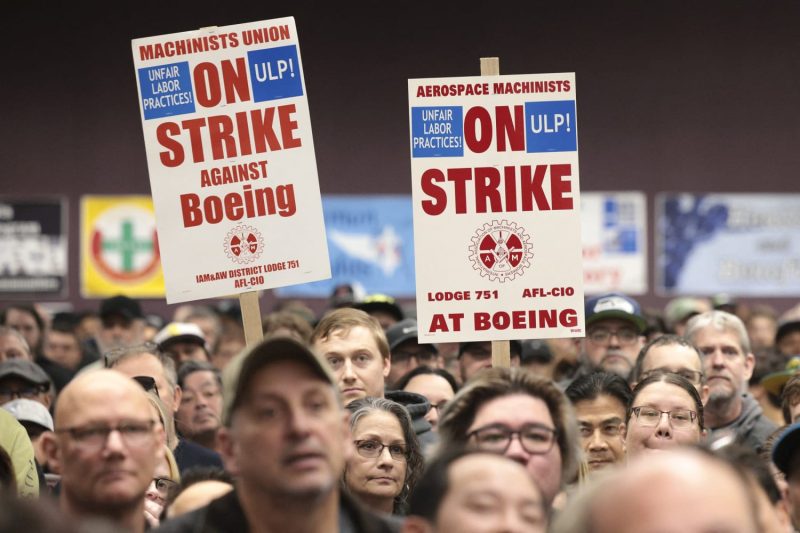
Boeing Machinists Stand Firm: Reject New Labor Contract, Extending Strike
The recent rejection by Boeing machinists of a new labor contract, which would have extended a strike that has been ongoing, has highlighted the complex dynamics between labor and management in the aerospace industry. This development not only reflects the dissatisfaction of workers with the terms offered by the company but also underscores the significant challenges facing both parties as they seek to reach a mutually beneficial agreement.
Aerospace unions, such as the International Association of Machinists and Aerospace Workers (IAM), play a crucial role in representing the interests of workers and advocating for fair wages, benefits, and working conditions. The decision by Boeing machinists to reject the proposed contract suggests that there is a fundamental misalignment between the expectations of the workers and the concessions being offered by the company. This discord can be attributed to a variety of factors, including differences in bargaining power, conflicting priorities, and the broader economic context in which negotiations are taking place.
For Boeing, the rejection of the contract represents a significant setback as the strike, already in its eighth week, has had a substantial impact on production schedules and financial performance. The company is under pressure to resolve the labor dispute quickly and minimize further disruptions to its operations. However, it is also essential for Boeing to recognize the concerns and grievances of its workers and engage in constructive dialogue to address these issues effectively.
At the heart of the matter are the competing interests of workers and management. While workers are seeking improved wages, benefits, and job security, the company must balance these demands with its financial constraints, market competitiveness, and long-term sustainability. Finding common ground requires both parties to engage in open and transparent communication, show willingness to compromise, and demonstrate a genuine commitment to reaching a fair and equitable agreement.
The rejection of the new labor contract by Boeing machinists serves as a reminder of the importance of effective labor-management relations in the aerospace industry. By working together collaboratively and in good faith, both parties can find solutions that benefit all stakeholders and contribute to the success and resilience of the company. As negotiations continue, it is crucial for Boeing and the IAM to remain focused on their shared goal of reaching a resolution that fosters a positive and sustainable working relationship for the future.
